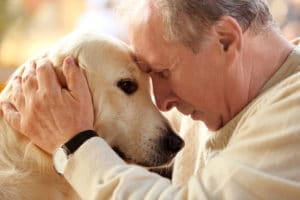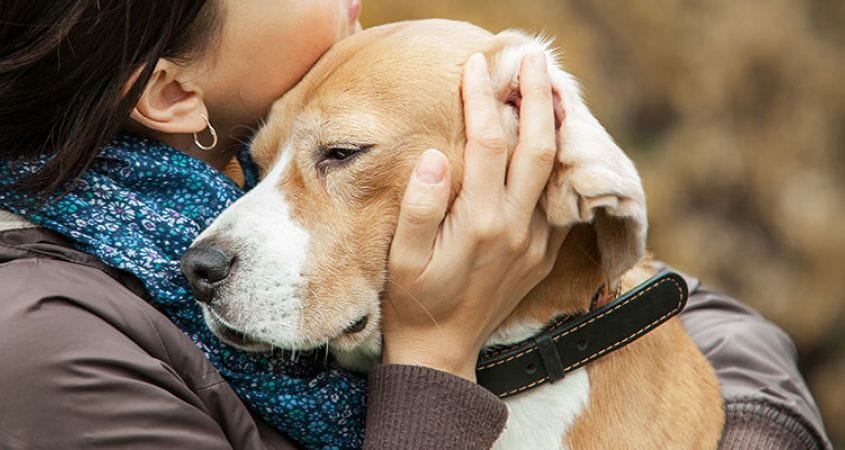If you’ve ever lost a dog, then you’ve probably heard the following well-meaning but somewhat heartbreaking comment, “Well, it was just a dog.” Only someone who isn’t a dog lover would ever say that.
What people who’ve never been in the position of losing a dog don’t understand is that it isn’t like leaving your favorite sweater on the subway or finding your goldfish floating on its side. The impact of this kind of loss is much bigger, partly because dogs generally are with us into their teens, but also because, even on a subconscious level, they have integrated themselves into our hearts and our families.
The Impact of Losing a Dog
The loss of a dog represents multiple losses at the same time.
The biggest loss, of course, is the unconditional love that they give us and which we have earned over their lifetimes. We probably have no relationships — especially not human ones — with such high levels of trust and respect as those that we develop with our dogs, so the loss of that connection can be especially devastating.
There is also that familial aspect again. Losing a dog can be, to some people, as painful as losing a child, especially because our dogs rarely live to reach the age of a human adult. At least in that chronological sense, our dogs always die as children.
Also, although it’s not a good idea to anthropomorphize our dogs and treat them like little humans, there are probably very few dog lovers who can honestly say that they don’t have “conversations” with their dogs. Remember, dogs are excellent listeners, and this ability is part of the reason that they work so well as therapists for humans.
Your dog is always there as a sounding board and even if they can’t give you advice, they can give support as you share your hopes and worries with them. The loss of this support system adds another level to the grief we can feel when our dog dies.
Routines with Dogs

As if that weren’t all difficult enough, we bring our own emotions to the situation, and they can often just amplify the guilt. Since, quite frequently, we are the ones who must make the decision to end a dog’s life due to advanced illness, it can also be quite easy to go on second-guessing that choice — “Were there other medical options? Did I do enough? Should I have waited just to see if she recovered on her own?”
This is why it’s so important to develop a good relationship with a veterinarian who cares about your dog as much as you do, then to trust their judgment when it comes to this question. A good vet will explain your options for treatment and help you make the right decision.
Because we are responsible for our dogs’ safety and well-being, this feeling of guilt comes with any loss, though, whether it was planned euthanasia after a long illness or sudden death due to accident or other misadventure. After all, if your dog gets out and is hit by a car, it’s very easy to blame yourself for leaving the gate open, not keeping an eye on him, or not taking more time to train him to stay out of the street.
Finally, our society does not have the same support mechanisms in place for the passing of a dog as we do for the passing of a human. Wakes, memorials, and elaborate funerals are the rule when it comes to human death. For dogs, these would all be exceptional events, although police and military service dogs do often have full-on funerals. Civilians, though, do not generally receive the comfort of giving their dog such a ceremony, and so generally have to go through the process of saying good-bye alone or limiting it to the immediate family.
If you’ve ever lost a dog of your own, though, you probably also know that they wouldn’t care whether they had a funeral or not as long as you were there at the end. While it’s very difficult, being present for that pain is probably the best way to prepare for the grieving process — and to see that, up until the very end, your dog always saw you as their best friend.
For more information on preparing for and surviving through the process of losing a dog, please visit our End of Life Care section.











